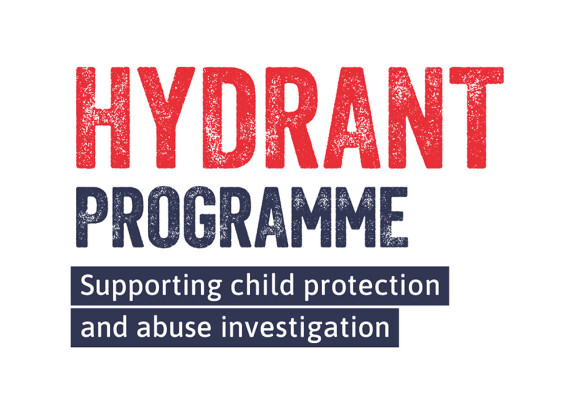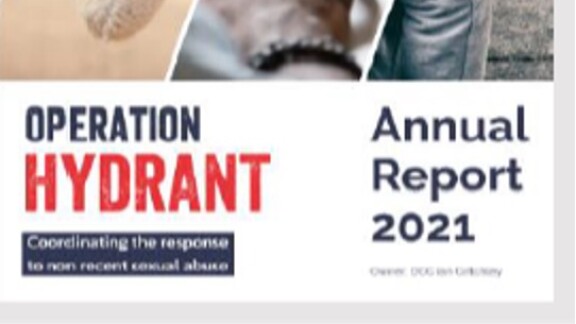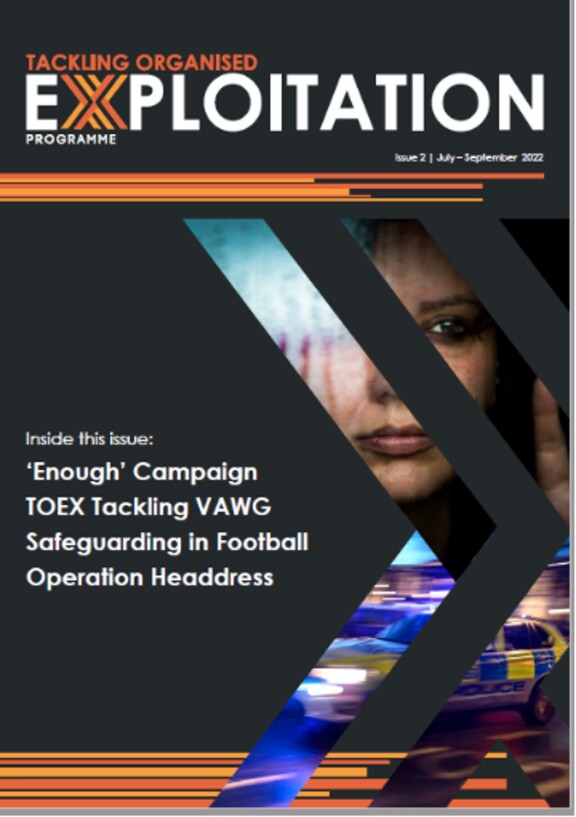Stakeholder update Jul 2022
Dear Operation Hydrant Stakeholder,
It’s been a busy few months for the Operation Hydrant team as we prepare to move to our new structure on Monday 1 August. There’s an update below and, as ever, if you have any questions or feedback please do get in touch, it’s always good to hear from you.
Restructure update
From Monday 1 August Operation Hydrant will become the Hydrant Programme! As you are aware, Operation Hydrant’s remit will broaden to encompass the whole of the Child Protection and Abuse Investigation portfolio rather than focussing purely on non-recent child sexual abuse carried out by persons of public prominence (PPPs) or associated with an institution.

Moving to being called the Hydrant Programme aligns us with sister national policing programmes – the Tackling Organised Exploitation (TOEX) Programme and the Vulnerability Knowledge and Practice Programme (VKPP). It is hoped that, although this is a relatively subtle change, the difference will be noted by partners and stakeholders, reinforcing the change in direction and new way of working. There is also a new strap line to highlight the enhanced offer and change in focus.
In order to expand the capacity of some of the invaluable support we provide to forces, partners and stakeholders, some of our current offer will end. The HOLMES database will close to incoming data, but we will retain the information on it for reference, coordination, and deconfliction purposes if required. This means we won’t offer a deconfliction service to police forces in the way we have since 2014 but all data collected since then will be archived and accessible if required.
One thing that won’t change is our stakeholders being front and centre of the work we do. National policing continually benefits from the hugely positive relationship we have with so many organisations across the sector. Opportunities for two-way dialogue and challenge are firmly in the plan for our new way of working. For more detail on the new Hydrant Programme offer please do have a look at the factsheet which accompanies this month’s update.
FOI publication scheme
In our current structure the data collected from monthly force returns is collated and analysed to produce insight into current trends in reporting of non-recent child sexual abuse within the Operation Hydrant criteria. This is published each quarter via the National Police Chief’s Council website, and disseminated to forces, partners, and stakeholders.
The final set of quarterly data will be published next week, and we will share it in the next update to you (although it will be available on the NPCC website). There will then be a final month of data which will be shared in August. This will conclude data publication in this way.
The Hydrant Programme Analysis and Research team will then move to focus on supporting and contributing to the whole of the NPCC portfolio for child protection, and abuse investigation. This remit will include ensuring the integrity and accuracy of national crime data in order to provide the most current and rich picture around CSAE. The team will collaborate with the already established national analyst teams within VKPP, NCA and the College of Policing. The tasking of bespoke projects will take place through a newly established Analysis and Research Collaboration Project led by the CPAI Working Group. We hope this provides reassurance that there is very much a focus on data analysis and there will be a number of routes to access new products.
We are working with the team at the NPCC to archive the quarterly updates we have produced over the last eight years to allow access when required, and if you have a need for this data, you can always contact Hydrant directly, we’ll always be happy to help.
Deputy Director – Vulnerability Knowledge and Practice Programme
We’re pleased to share a fantastic opportunity with you if you’re looking for the next step in your career. The Vulnerability Knowledge and Practice Programme (VKPP) is looking for their next Deputy Director – could it be you?
The Deputy Director will be responsible for ensuring the effective operational delivery of the VKPP.
The Vulnerability Knowledge Practice Programme (VKPP) team consists of a range of professionals: people from the charity sector, academics, police officers, a mix of backgrounds and abilities with a collective aim to coordinate and improve the police service's response to vulnerability.
The programme works across England and Wales and roles are national and working from home. If you are working from London, London weighting will be added to the salary. The VKPP is hosted by Norfolk Constabulary who facilitate the recruitment processes. VKPP roles are grant funded for 3 years from the 1 April 2022 and the majority of posts are offered on this basis.
The closing date is Friday 5 August at 5pm
Operation Hydrant Annual Report 2021

The Operation Hydrant Annual Report covering the calendar year 2021, was shared with you as key stakeholders in June. This year we produced a report that wasn’t protectively marked to enable wider distribution to interested partners and stakeholders.
We hope you received your copy of the Annual Report and found the content and analysis of current trends in non-recent CSA reporting useful to your work.
If you haven’t received the Annual Report, please get in touch via [email protected] and we’ll be more than happy to send you a copy.
Child Sexual Exploitation reports – policing response
Over the past few weeks three reports have been published which have all focussed on child sexual abuse and child sexual exploitation, and the way a number of agencies have responded. The reports were:
-
Review into historic safeguarding practices
-
Operation Linden
-
Independent Inquiry
The forces in question have all acknowledged failings and detailed how they have benefitted from learning, adapting their investigative approach and data analysis to deliver improved outcomes for victims and survivors. Hydrant will continue to ensure that all learning from reports such as these is captured and reflected upon.
Through each of these reports key themes were revisited – themes that are not new to anybody who works within the vulnerability sector. We expect they will again be highlighted when the Independent Inquiry into Child Sexual Abuse publishes its final report later this year. We all know that data collection and analysis, race and ethnicity, victim voice and multi-agency coordination are the roots of challenges law enforcement and other partners working in this sector face. We also know that significant progress has been made in tackling these issues.
NPCC lead for this area, DCC Ian Critchley acknowledges these challenges but is also keen to highlight the hard work being carried out by teams across the county. Policing has worked hard to learn from its mistakes, and the approach to tackling CSA and CSE has evolved significantly. One example of innovation is the regional network of analysts who capture data nationally, to form a rich picture of trends in CSE and CSA. This analysis provides for more informed responses at both a national and local level, preventing harm and protecting victims.
DCC Critchley and his team will be considering the recommendations from each report in the coming weeks. We’ll bring you an update when we can.
The Police Foundation Report
On Tuesday 19 July, The Police Foundation published ‘Turning the tide against online child sexual abuse’. This report looks at what can be done to help “turn the tide” on online Child Sexual Abuse (CSA), describing the scale and nature of online CSA and assessing the ability of the police and law enforcement to investigate these crimes. Also, the service provided to victims of online CSA is examined and, finally looks at what more can be done to prevent online CSA in the first place
In response to the report, DCC Ian Critchley said “This is a crime type where, largely, children need be supported and educated, not criminalised. There is a clear need through the work we are doing with the National Crime Agency (NCA) to prioritise and differentiate between these cases, and cases where children are exploited, blackmailed, groomed, threatened, and abused.”
Finally, you will be aware of our close working relationship with our two sister national programmes – Vulnerability Knowledge and Practice Programme (VKPP) and Tackling Organised Exploitation Programme (TOEX).
TOEX have now launched a new online e-magazine, which can be viewed by clicking this link.
The e-magazine will be published on a quarterly basis and provides key partners and stakeholders with an update on the programme as well as includes feature pieces on some of the fantastic national and regional collaborative work being undertaken in the fight against organised exploitation.

Tell us your thoughts
There’s a lot packed into this update, we hope you find it informative and useful in your work.
If you have any thoughts or feedback please do get in touch, it’s always great to hear from you. We’d also welcome ideas on what you’d like to see in future updates, all suggestions welcome.
Please drop a line to [email protected], it’s always great to hear from you.
And finally...
In the next few weeks Hydrant’s contact email addresses will change. We don’t have a date for this yet, so please keep using [email protected] to keep in touch with the team.
When we know have more details we’ll share them as soon as we can.